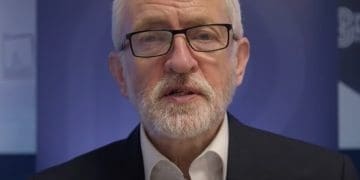A banner hangs off a prominent Bristol bridge. “Glad Colston’s gone. Drop the charges”, it reads. Meanwhile, bus stops have been subvertised with: “10,000 people in Bristol toppled Colston”.
Four people stood in the dock on Monday, accused of removing the statue of slave trader Edward Colston and rolling it into Bristol’s docks in June 2020. They have all pled not guilty and opted for a jury trial at the Crown Court.
But for Bristolians, this has never been about four people. It was a collective act which took place at the end of a 10,000-strong Black Lives Matter demonstration: an act which said that the city’s residents would no longer allow its celebration of white supremacists to continue.
“We all did it”
As Alternative Bristol wrote at the time:
We all did it. Dozens & dozens of people physically participated in the pulling down of Colston, the defacement of the statues & plinth, and many more helped roll him into the harbour. They were cheered on & applauded by many hundreds more of us. As the culmination of years of unsuccessful campaigning to have a factually correct plaque attached to the statue, or have it removed to a museum for historical reference – in the end half an hour of direct action did the job nicely. We were there cheering & commentating, many of you were there too. We all did it.
Before Monday’s court hearing, a spokesperson from Black Community Rising argued:
Everyone who was at the toppling of the statue should be celebrated for their act. The toppling was an act of self-defence of society against the attacks of colonialists. It was an assertion of our shared values, morality, our equality and shared freedom.
Local solidarity
Shortly after the toppling of the statue, Avon and Somerset police launched an investigation to identify those involved. The police sent a collection of images out to the media of 15 people they wanted to identify in relation to the protest. But as The Canary previously reported, Bristol’s local media took a stand and refused to publish the photos. At the time, the Bristol Cable commented:
We will not be using our platform to aid a prosecution of individuals who, in a non-violent act of minor property damage, made a historic contribution to the honest reckoning with our country’s past that is so crucial to justice and building a future for all communities.
Ten were arrested for suspicion of causing criminal damage. Six of those charged accepted conditional police cautions. The remaining four are the defendants now facing a trial.
Strong support
An online rally took place in support of the four on the morning of the trial, with an 8 minute silence to remember the 84,000 people whose kidnap and enslavement Colston helped to fund and organise during his time with the Royal Africa Company. And on social media, members of the public have written letters of support for the four on trial.
Meanwhile, Avon and Somerset police made it very clear that anyone showing up at court in solidarity would be “breaking the law“. According to witnesses, three van loads of police turned up at court, and four people were arrested.
Removing Colston’s name from Bristol
The toppling of the Colston statue back in June has forced the city to remove the Colston name from a number of landmarks and institutions, such as the Colston Tower, Colston Hall, Bristol Cathedral, and Colston Girls School.
Kelly Ash of Support the Colston 4 said:
The removal of the Colston name from so many Bristol institutions since the toppling is a great start, but it can’t be the end. This prosecution is an insult to the 19,300 men, women and children Colston murdered in the course of his business. As long as political leaders continue to regard those people as an irrelevance, we will live under institutions who disproportionately kill, injure and disadvantage Black people in this city.
Climate of fear
The ongoing prosecution of the four protesters isn’t reflected in public opinion. A Bristol Live survey of over 11,000 readers even revealed that almost 60% of respondents didn’t want the protesters to face prosecution. But time and again, protesters are scapegoated by the state to create a climate of fear and intimidation, so that people will be deterred from taking further action. Back in June, Priti Patel described the Black Lives Matter protesters responsible for toppling Colston as a “mob“.
The Black Lives Matter movement continues to grow. Meanwhile, Britain is finally waking up to the institutional racism it was built on. No wonder the government is scared.
Featured image via YouTube / screen grab










